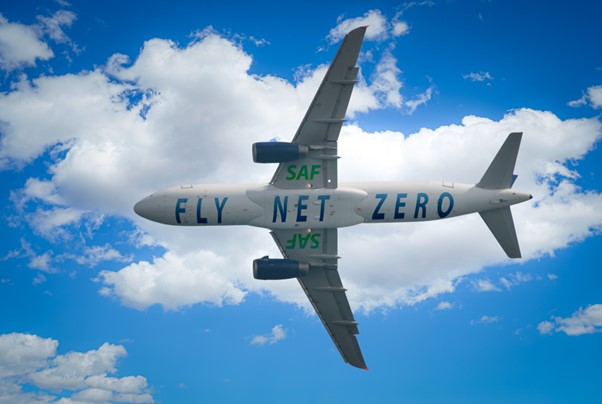
Photo: Ivan Marc Shutterstock
The International Air Transport Association (IATA) looks forward to governments delivering the supportive policies needed to enable aviation’s decarbonisation, as agreed at the Third Conference on Aviation Alternative Fuels (CAAF/3) hosted by The International Civil Aviation Organization (ICAO) in Dubai.
CAAF/3 delivered critical agreement on:
1. A global framework to promote Sustainable Aviation Fuel (SAF) production in all geographies around the world. The aim is that aviation fuel in 2030 will be 5% less carbon intensive than fossil fuel used today by the industry.
2. Acknowledging that certain countries can progress faster and others cannot.
3. Capacity building, a “Finvest Hub”, and voluntary technology transfer are all measures to ensure that all countries can partake in a global SAF market.
4. There is a need for a solution that can foster a global SAF market while enabling airlines to claim the environmental attributes of their SAF purchases against their decarbonisation obligations based on a global and robust SAF accounting framework.
“Governments have understood the critical role of SAF to achieve net zero emissions for aviation by 2050. The CAAF/3 results add an ambitious vision of the shorter 2030 time horizon. To that end, the CAAF/3 agreement signals to the world, in no uncertain terms, the need for policies that enable real progress. There is no time to lose. IATA now expects governments to urgently put the strongest possible policies in place to unlock the full potential of a global SAF market with an exponential increase in production,” said Willie Walsh, IATA’s Director General.
Demand Signal and Policies to Support SAF Production
This is necessary because airlines’ demand for SAF, in line with their commitment to net zero carbon emissions by 2050, vastly exceeds the availability of SAF today, limited to 0.2% of airlines’ jet fuel consumption in 2023. Airlines have sent significant demand signals to the SAF production market:
All SAF produced in 2022 was bought at an additional cost to the industry of around USD 500 million, as SAF is priced at a significant premium over jet fuel.
There are increasing examples of airlines vertically integrating into the supply chain, with some committing equity and risk capital to SAF projects.
Airlines have entered forward purchase agreements for SAF worth around USD 45 billion, well over today’s SAF availability.
“We need to see governments acting on the CAAF/3 declaration with policies that expand SAF production in all its shapes and forms. Despite unequivocal demand signals, the SAF production market needs to develop faster. We need SAF everywhere in the world. Walsh added that the right supportive policies–policies that can stimulate production, promote competition, foster innovation, and attract financing – must be put in place today,” Walsh added.
IATA urges countries to implement measures that will increase global SAF production by:
- Making it possible for manufacturers to take full advantage of local feedstock availability.
- Adopting positive, rather than punishing, policies
- Balancing present and potential policy assistance among diverse energy sources, with a preference for renewables and ensuring SAFs’ fair share of the latter.
- Recognise that success in modernising aviation and reaching nett zero carbon emissions requires a team effort.
“The goal is maximising SAF production everywhere with positive, not punitive, policy measures. Airlines are ready with open arms to catch the resulting SAF production. While airlines are at the sharp end of decarbonisation, they cannot bear the burden alone. CAAF/3 has again made it clear that decarbonisation in aviation will require the wholehearted and united efforts of the entire value chain and governments as we all focus on net zero by 2050. To be perfectly clear, where government money leads, private money will follow. It is essential that governments play their part, and we will certainly play ours, “, said Marie Owens Thomsen, IATA’s Senior Vice President Sustainability and Chief Economist.
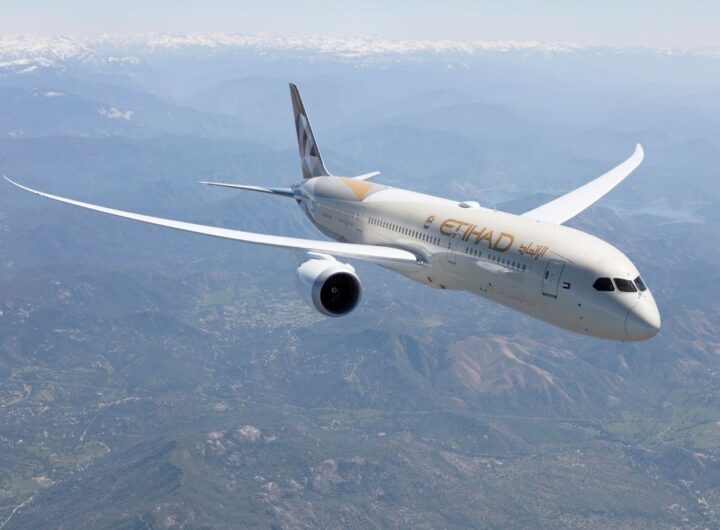 Etihad Upgrades All Australia Flights to Its Newest Business Class Suites
Etihad Upgrades All Australia Flights to Its Newest Business Class Suites 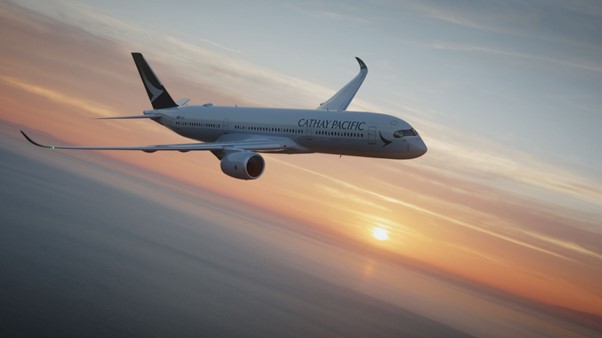 Cathay Strengthens Global Sustainability Leadership With Record SAF Commitments in 2025
Cathay Strengthens Global Sustainability Leadership With Record SAF Commitments in 2025 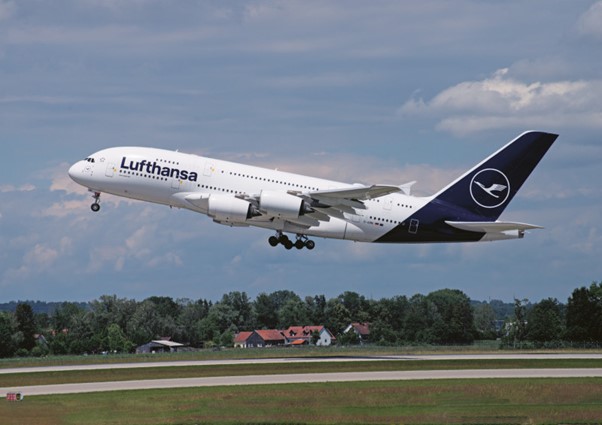 Lufthansa Begins A380 Business Class Retrofit, Elevating Comfort and Privacy Across Its Largest Aircraft
Lufthansa Begins A380 Business Class Retrofit, Elevating Comfort and Privacy Across Its Largest Aircraft  United Showcases Starlink Wi‑Fi in Big Game Ad as 300+ Regional Aircraft Go Online
United Showcases Starlink Wi‑Fi in Big Game Ad as 300+ Regional Aircraft Go Online 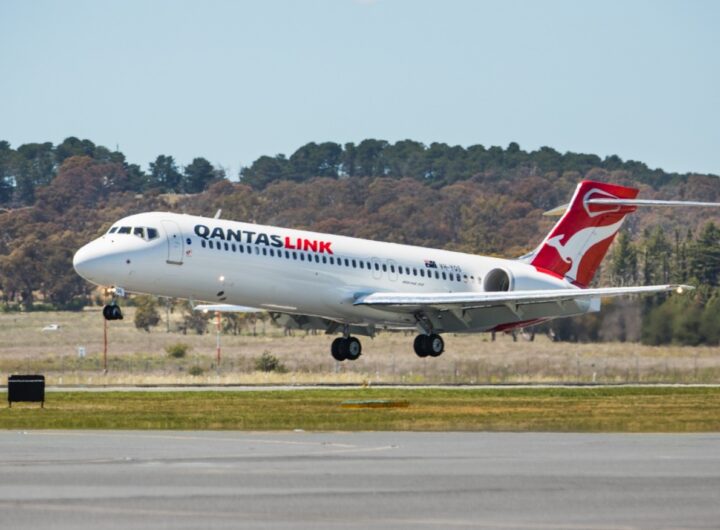 Qantas Launches Major Regional Lounge Refresh Program Across Seven Australian Airports
Qantas Launches Major Regional Lounge Refresh Program Across Seven Australian Airports 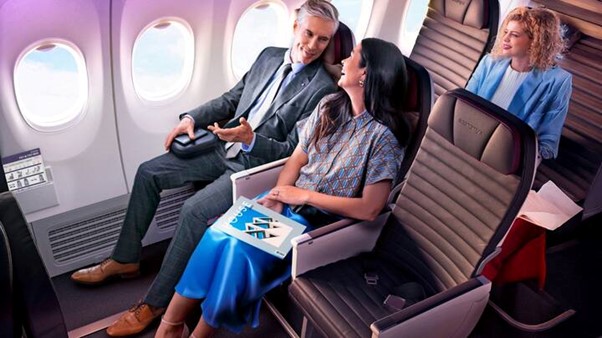 Virgin Australia Launches ‘Extra Comfort, Zero Imitation’ Sale With Economy X Upgrades From Just $15
Virgin Australia Launches ‘Extra Comfort, Zero Imitation’ Sale With Economy X Upgrades From Just $15  AmaWaterways Launches Fresh Brand Identity, Encouraging River Cruisers to ‘Follow Their Own Current’
AmaWaterways Launches Fresh Brand Identity, Encouraging River Cruisers to ‘Follow Their Own Current’  Marriott Bonvoy Launches Global Promotion Offering Bonus Points and Elite Night Credits Across 30+ Brands
Marriott Bonvoy Launches Global Promotion Offering Bonus Points and Elite Night Credits Across 30+ Brands  MSC Cruises to Stream 2026 Global Soccer Tournament Live Across Its Entire Fleet This Summer
MSC Cruises to Stream 2026 Global Soccer Tournament Live Across Its Entire Fleet This Summer  Five Reasons to Visit Kamalaya Now: Inside the Next Era of Thailand’s Legendary Wellness Sanctuary
Five Reasons to Visit Kamalaya Now: Inside the Next Era of Thailand’s Legendary Wellness Sanctuary 